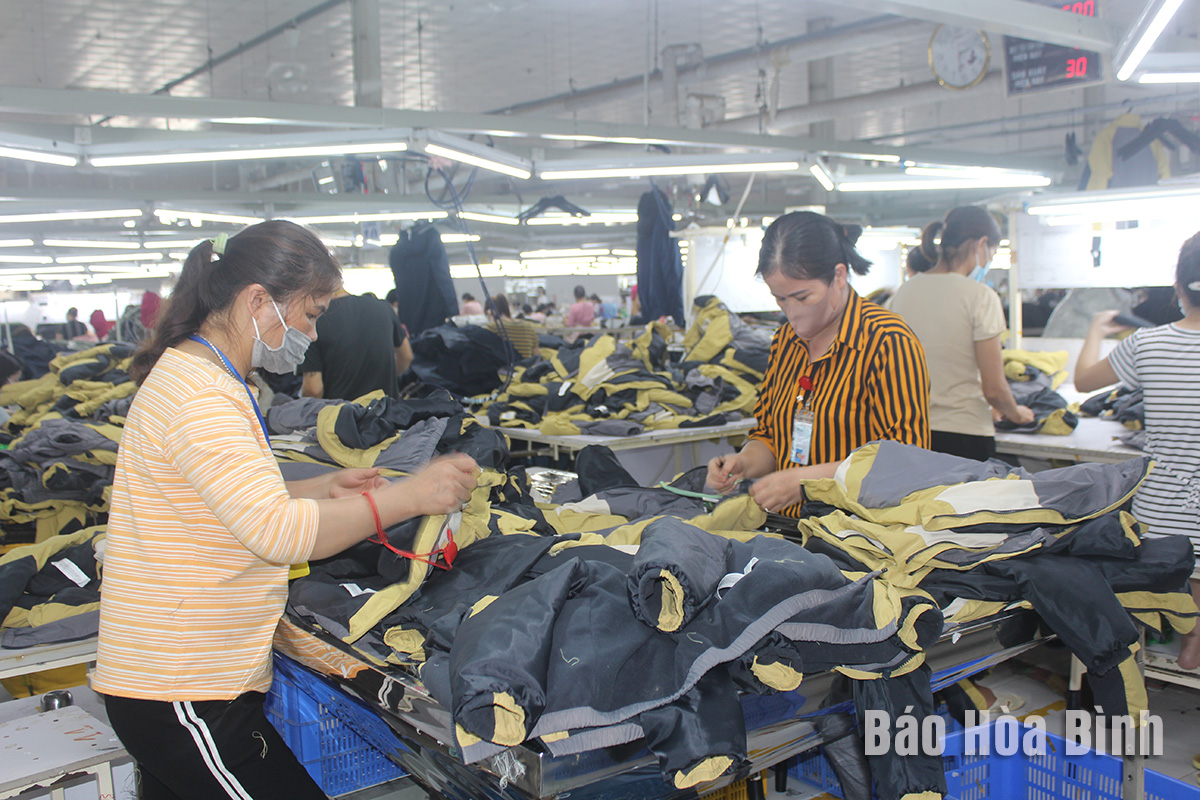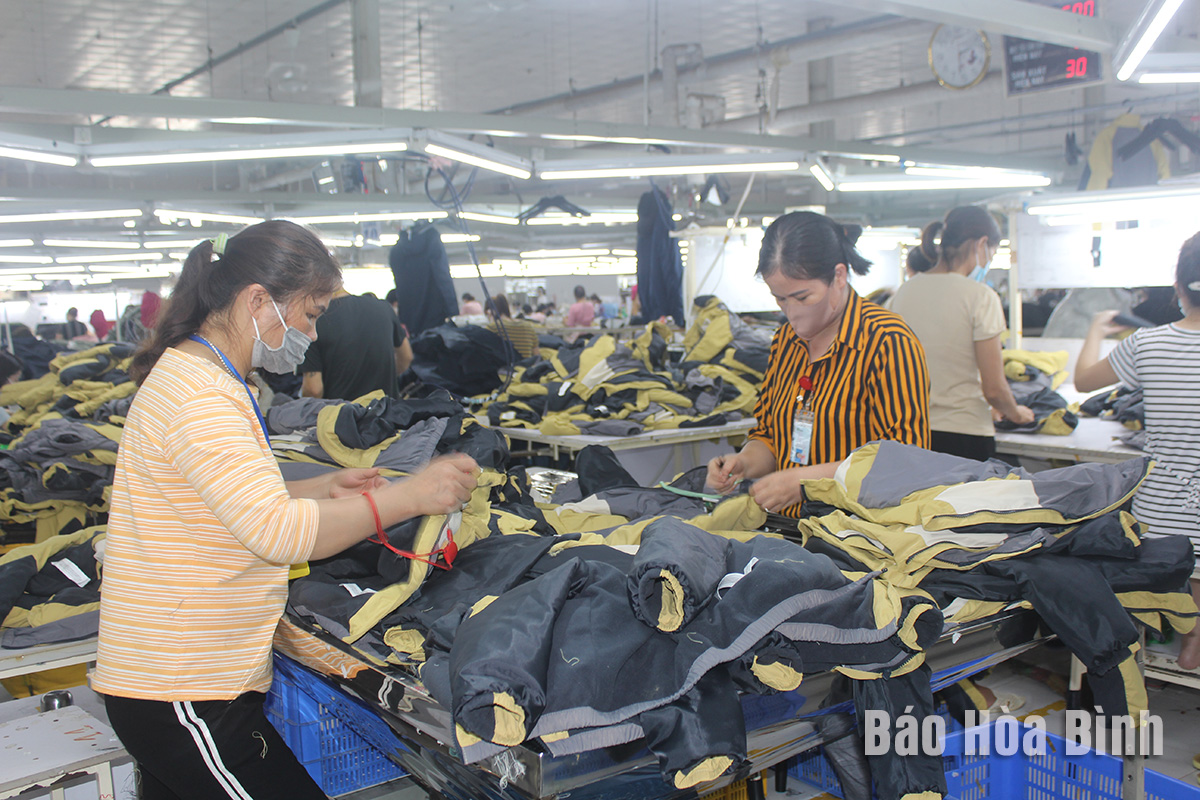
The Party building work has been held in high regard in non-state businesses in Hoa Binh province. Right from the outset of 2023, the steering division for Party building work and development of organisations in non-state businesses issued working plans, assigned tasks for its members, and carried out two surveys at the Party organisations of Luong Son district and Hoa Binh city to see how they carried out the work.
Non-state enterprises have paid due attention to the Party
building and development of organisations work.
Last year, 40 employees at non-state businesses
were admitted to the Party, or 143% of the figure recorded in 2022. To date,
the provincial Party organisation has had 1,182 Party members who are workers
at non-state enterprises, up 6.1% year-on-year.
Eight party cells were established at Dinh Nhuan
Trade JSC and Binh Nam JSC (Hoa Binh city), BigFa JSC, Hoa Son tourism and
community development JSC (Luong Son district), Da Bac district business
association and Tam Cuong cooperative (Da Bac district), Vietnam Electric Power
Technology Service JSC (Lac Thuy district), and youth-mineral spring tourism
trade company (Kim Boi distrit).
Party cells have been set up at 72 enterprises
in Hoa Binh province so far, accounting for 118% of the number in 2022. They
have been operating in line with the regulations of the Secretariat and local Party
committee’s standing board.
Realising their important role and position,
they have worked to raise the workers’ political awareness, mobilise business
owners, members of the companies’ boards of directors and boards of management
to carry out the State policies, ensure the legitimate rights of the workers,
and create a working environment of cooperation, solidarity and development to
improve the quality and efficiency of production and business.
Most of the party members in the enterprises
have set an exemplary model in following the Party’s guidelines and State’s
policies, and making contributions to their companies’ development.
According to data from the Hoa Binh Provincial Party Committee, the industrial production index for the first six months of 2025 is estimated to have increased by 20% compared to the same period last year. This marks the highest year-on-year growth rate for this period since 2020.
In the first six months of 2025, Hoa Binh province’s export turnover was estimated at 1.145 billion USD, marking an 18.11% increase compared to the same period in 2024. Import turnover was estimated at $ 804 million, a 17.15% increase, which helped the province maintain a positive trade balance.
The lives of the ethnic minority farmers in Tan Lac district have gradually improved thanks to the new directions in agricultural production. This is a testament to the collective strength fostered through the professional associations and groups implemented by various levels of the district’s Farmers’ Union.
With the motto the "product quality comes first,” after nearly one year of establishment and operation, Muong village’s Clean Food Agricultural and Commercial Cooperative, located in Cau Hamlet, Hung Son Commune (Kim Boi district), has launched reputable, high-quality agricultural products to the market that are well-received by consumers. The products such as Muong village’s pork sausage, salt-cured chicken, and salt-cured pork hocks have gradually carved out a place in the market and they are on the path to obtaining the OCOP certification.
In the past, the phrase "bumper harvest, rock-bottom prices" was a familiar refrain for Vietnamese farmers engaged in fragmented, small-scale agriculture. But today, a new spirit is emerging across rural areas of Hoa Binh province - one of collaboration, organisation, and collective economic models that provide a stable foundation for production.
Maintaining growing area codes and packing facility codes in accordance with regulations is a mandatory requirement for agricultural products to be eligible for export. Recently, the Department of Agriculture and Environment of Hoa Binh province has intensified technical supervision of designated farming areas and packing facilities to safeguard the "green passport" that enables its products to access international markets.



